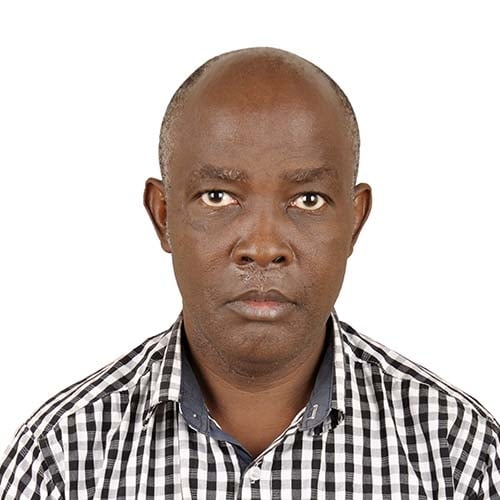
Probability-primary mathematics

Probability
Probability is the likelihood or chance of an event occurring.
Many events can’t be predicted with total certainty. The best we can say is how likely they are to happen, using the idea of probability.
Tossing a Coin

When a coin is tossed, there are two possible outcomes:
- heads (H) or
- tails (T)
We say that the probability of the coin landing H is ½
And the probability of the coin landing T is ½
Throwing Dice

When a single die is thrown, there are six possible outcomes: 1, 2, 3, 4, 5, 6.
![]()
In general:
![]()
Example 1:
What is the chances of rolling a “4” with a die
Number of ways it can happen: 1 (there is only 1 face with a “4” on it)
Total number of outcomes: 6 (there are 6 faces altogether)
![]()
Example 2:
There are 5 pens in a bag: 4 are blue, and 1 is red.
What is the probability that a blue pen gets picked?
Number of ways it can happen: 4 (there are 4 blues)
Total number of outcomes: 5 (there are 5 marbles in total)
![]()
The probabilities lie between 0 and 1
(i) The probability of something which is certain to happen is 1. For example, the probability that the sun will rise from the east tomorrow is 1
(ii) The probability of something which is impossible to happen is 0. For example the probability that man has four eyes = 0
(iii) The probability of something not happening is 1 minus the probability that it will happen.
For revision questions and answers download PDF

Thanks As an average 25 seems to be as good as any other numberOne other factor to consider:- we probably have a smaller percentage of our 10th cousins living today than the percentage of 4th cousins Some (many?) of our 10th cousins were born many years ago, or haven’t yed been born, and so they will not have been tested A higher percentage of fourth cousinds will have done a DNA testIs there a measure of the spread of the ages for cousins?Dewi
The inflammatory cytokines, IL 6 and TNF О±, were measured using high sensitivity ELISA kits R D Systems, Oxon, UK can i buy cytotec prices
Your blog is a source of inspiration for me. Computer & Accessories
You always make things easy to understand. chhattisgarh cm news
This is exactly what I was looking for. Sports News
Discover the MBBS Cutoff Of Private Medical Colleges in Delhi and plan your admissions effectively.
Discover cutoff marks for admission at MBBS Cutoff Of Private Medical Colleges in Telangana.
The Raja Luck App brings you thrilling games at your fingertips.
[…] excitement it generates. Understanding the dynamics of this lottery can considerably improve your probabilities of profitable, and that’s the place the thriving Bepick evaluation community comes into play. […]
[…] players is in all probability not aware of the varied scams prevalent in the Sports Toto scene. These scams can take a number of […]
equilibrando
Equipos de ajuste: esencial para el funcionamiento uniforme y eficiente de las equipos.
En el mundo de la ciencia actual, donde la efectividad y la confiabilidad del sistema son de suma relevancia, los equipos de ajuste tienen un papel crucial. Estos sistemas específicos están diseñados para balancear y estabilizar componentes giratorias, ya sea en equipamiento de fábrica, medios de transporte de traslado o incluso en electrodomésticos de uso diario.
Para los expertos en reparación de sistemas y los ingenieros, operar con equipos de equilibrado es crucial para promover el rendimiento estable y fiable de cualquier sistema dinámico. Gracias a estas alternativas tecnológicas sofisticadas, es posible minimizar significativamente las vibraciones, el ruido y la presión sobre los sujeciones, aumentando la longevidad de elementos caros.
Igualmente importante es el tarea que tienen los dispositivos de balanceo en la atención al usuario. El apoyo técnico y el mantenimiento regular empleando estos dispositivos habilitan ofrecer prestaciones de gran excelencia, mejorando la agrado de los clientes.
Para los dueños de proyectos, la financiamiento en equipos de equilibrado y detectores puede ser fundamental para aumentar la eficiencia y eficiencia de sus dispositivos. Esto es sobre todo trascendental para los empresarios que dirigen modestas y medianas emprendimientos, donde cada punto vale.
Por otro lado, los aparatos de balanceo tienen una vasta implementación en el campo de la seguridad y el supervisión de estándar. Habilitan encontrar posibles problemas, evitando arreglos caras y perjuicios a los dispositivos. Incluso, los resultados recopilados de estos dispositivos pueden aplicarse para perfeccionar sistemas y incrementar la visibilidad en plataformas de exploración.
Las sectores de aplicación de los dispositivos de calibración comprenden diversas industrias, desde la producción de vehículos de dos ruedas hasta el control ambiental. No afecta si se considera de enormes elaboraciones manufactureras o pequeños establecimientos hogareños, los aparatos de ajuste son esenciales para proteger un desempeño productivo y libre de fallos.